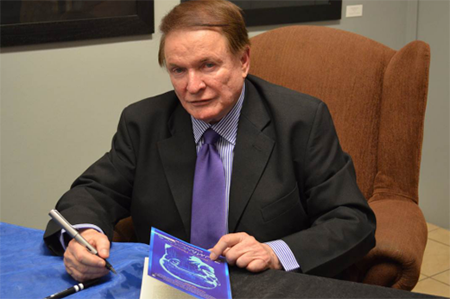With South Africa having turned the corner politically and President Ramaphosa promising a ‘new dawn’, many people are cautiously optimistic about the prospects of an economic turnaround in the country. However, in looking forward to a better future, it is important to remember – and extract relevant lessons from – the past, to which most of South Africa’s most pressing challenges these days can be traced.
The above is a recurring theme in the new book, Good Capitalism, Bad Capitalism: The Role of Business in South Africa, written by prominent North-West University (NWU) economist, Prof Raymond Parsons, together with Ali Parry.
As the title of the book suggests, South Africa is a country of contradictions, where ethical leadership (in both the public and private sectors) has been increasingly overshadowed by opportunism and greed. As a result, the country is more divided than ever before and tensions are mounting. The inequality that permeates society needs to be tackled in new and more vigorous ways so that the country’s oppressive and painful past does not end up repeating itself. High levels of unemployment, poverty and inequality in South Africa also mean that not enough people have a stake in the economy to uphold and defend.
At the launch of the book in Johannesburg on 29 May 2018, Prof Parsons said: “It cannot be business as usual in South Africa. Business has to play a much bigger role in shaping our national agenda, particularly in offering some really creative solutions to the country’s challenges.”
As the book points out, business is the main driver of the economy, yet for years has been a passenger in economic policy-making. A new social compact is clearly needed between government, business and labour so that collective solutions can be crafted that address the persistent problems gripping the country. Strong economic performance is heavily dependent on effective and accountable institutions, stressed Prof Parsons. A strong institutional framework and policy certainty are essential if the country is to attract much-needed investment and the economy is to shift into high gear.
One of the factors contributing to the diluted influence of the private sector in economic policy-making and planning is that the organised business sector – represented by chambers of commerce and business associations (including peak organisations like BUSA and BLSA) – has become increasingly fragmented over the years. Rather than constituting a collective ‘voice’ for business with a common mandate to hold their own members and government to account, organised business institutions often compete with one another, sending a confusing array of messages to the market.
What we have is a ‘cacophony of acronyms’. Duplication of effort leads to dwindling membership numbers per institution and weakens their ability to be effective advocates for the constituencies that they have traditionally served.
“Without a strong voice for business, it is not possible to steer or influence policy,” said Prof Parsons. This also leads to the neglect of accountability which is one of the cornerstones of a healthy democracy.
Former Finance Minister, Trevor Manuel, who was the guest speaker at the book launch, remarked: “We have lived through a decade in which people have been able to act with impunity, without consequences. We need to re-energise the concept of consequences when dealing with bad practices and habits.”
However, the root cause of many of South Africa’s problems – which, it can be argued, has found fertile ground in the capitalist system ‒ cannot be ignored.
“Capitalism has given us wealth beyond measure,” said Mr Manuel, “but it has taken away the chief benefit of wealth, and that is the concept of having enough.” A slew of public and private sector scandals involving Eskom, South African Airways, Steinhoff and many others are evidence of this. And while these high-profile cases are cause for alarm, what is equally concerning, he said, is the flip side to the story: that large swathes of the population are either unemployed or earn wages that are well below the recognised minimum level. “Why have we allowed this to happen?”
Mr Manuel added that, irrespective of people’s specific views on the merits or evils of capitalism and how South Africa’s socio-economic recovery should play out, the book makes a valuable contribution in that it stimulates very necessary debate about “who we are, what we must do and what the solution is for South Africa”.
Good Capitalism, Bad Capitalism: The Role of Business in South Africa (published by Jacana Media) is available from Exclusive Books countrywide and Loot (order online from http://www.loot.co.za).

Prof Raymond Parsons is the author Good Capitalism, Bad Capitalism: The Role of Business in South Africa.
